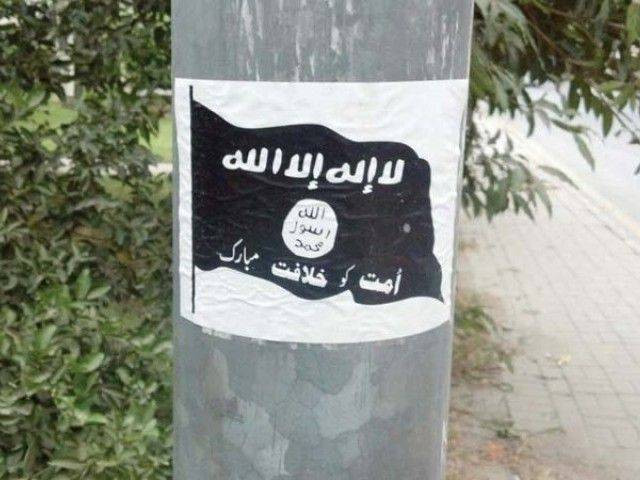The Islamic State evolves
Unlike al Qaeda, IS sought to take, hold and administer large swathes of territory

Islamic State. PHOTO: EXPRESS
Just as Bangladesh has failed to address the fundamentals in terms of terror-fighting (and that despite considerable help from the US and the UK in terms of capacity-building for counter-terror operations) so in Pakistan where a collapse of political will — if indeed it ever truly existed in the aftermath of the Army Public School massacre — has created the space in which IS now propagates. Any and all protests to the contrary have been roundly nullified by the Dhaka incident, which was carried out not by madrassa-educated automatons but middle-and-upper class young men who chose to ally themselves with the IS flag. Protestations by the Bangladesh authorities and security agencies that they were not being directed by IS displays a fundamental misunderstanding of IS as an entity, and what it seeks to achieve.

Unlike al Qaeda to which IS bears only a superficial resemblance and is in some aspects in conflict with, IS sought to take, hold and administer large swathes of territory and currently is doing just that — though it is beginning to suffer military reverses which are themselves feeding through to the change in operational response outlined above. IS is unused to military reversal and it remains to be seen if it will bounce back, but the myth of invincibility is firmly laid to rest. IS can be beaten on the battlefield as has been proven by recent events in Fallujah, but the wider deeper battle is for hearts and minds. It was was born of a political vacuum, of a failure of governance coupled with internecine conflict, much of it sectarian in nature.
The conditions that nurtured and created it have by and large not gone away, as the attack in Baghdad where the death toll has now climbed beyond 200 so dreadfully demonstrates. IS was quick to claim the atrocity, at the same time making it clear that the target was — and would remain — Shia Muslims. For IS a core goal has always been the imposition of its own brand of radical Islam, exemplified by reports of horror which have abounded, of populations terrorised and intimidated, of arbitrary executions and amputations, a bloody list that indicts IS as one of the more gruesome of modern regimes wherever it has ruled or remains in power.
Although weakened militarily, IS is swiftly metastasising and demonstrating a global operational capacity that is deployed and activated not so much by a group of grand planners, but by a range of groups and individuals that are self-radicalising and self-funding to a large degree as there is little evidence of IS channeling funds down to small operational groups. It is that operational latency that bubbles beneath the radar which must give greatest cause for concern. IS may not have infrastructure in Pakistan but it has innumerable sympathisers in a population that is already radicalised over decades, a phenomenon that is not going to be rolled back in the foreseeable future. Ownership of events in Baghdad and Dhaka is easy for IS and we may expect more of the same. We expect more denial as well, effectively handing a cheap win to IS, which will gratefully accept. There will be — more — blood.
Published in The Express Tribune, July 5th, 2016.
Like Opinion & Editorial on Facebook, follow @ETOpEd on Twitter to receive all updates on all our daily pieces.















COMMENTS
Comments are moderated and generally will be posted if they are on-topic and not abusive.
For more information, please see our Comments FAQ